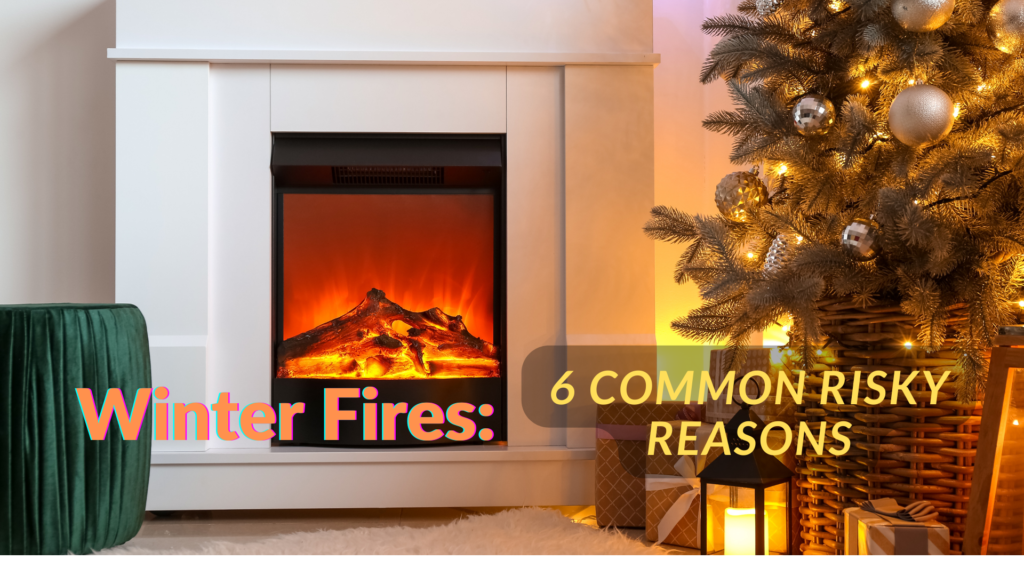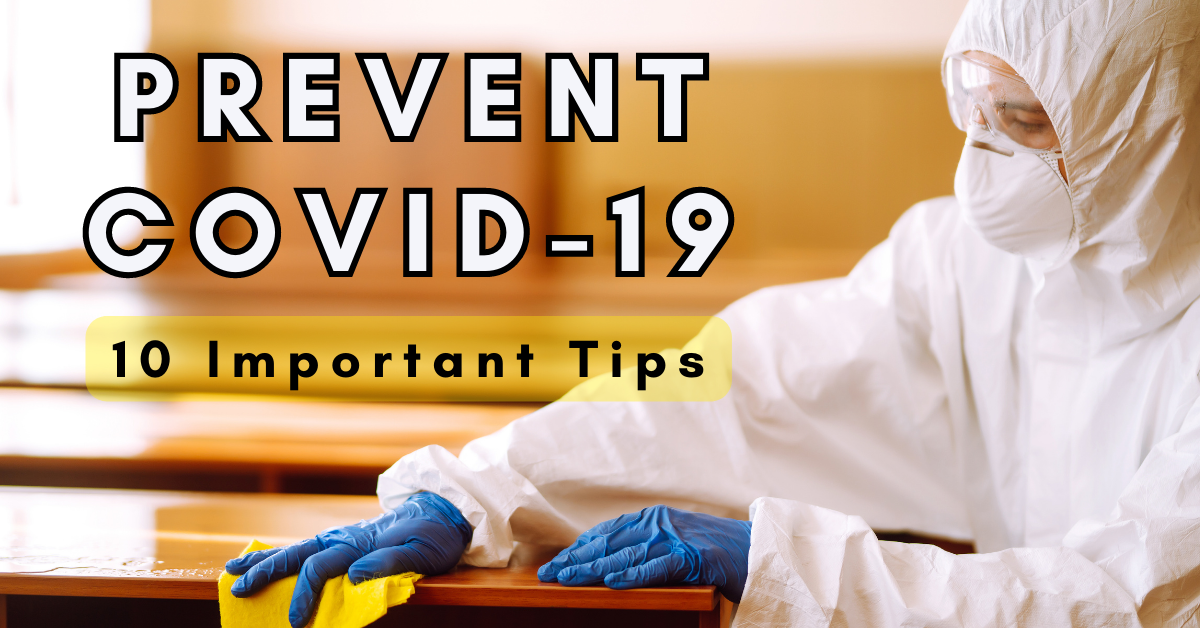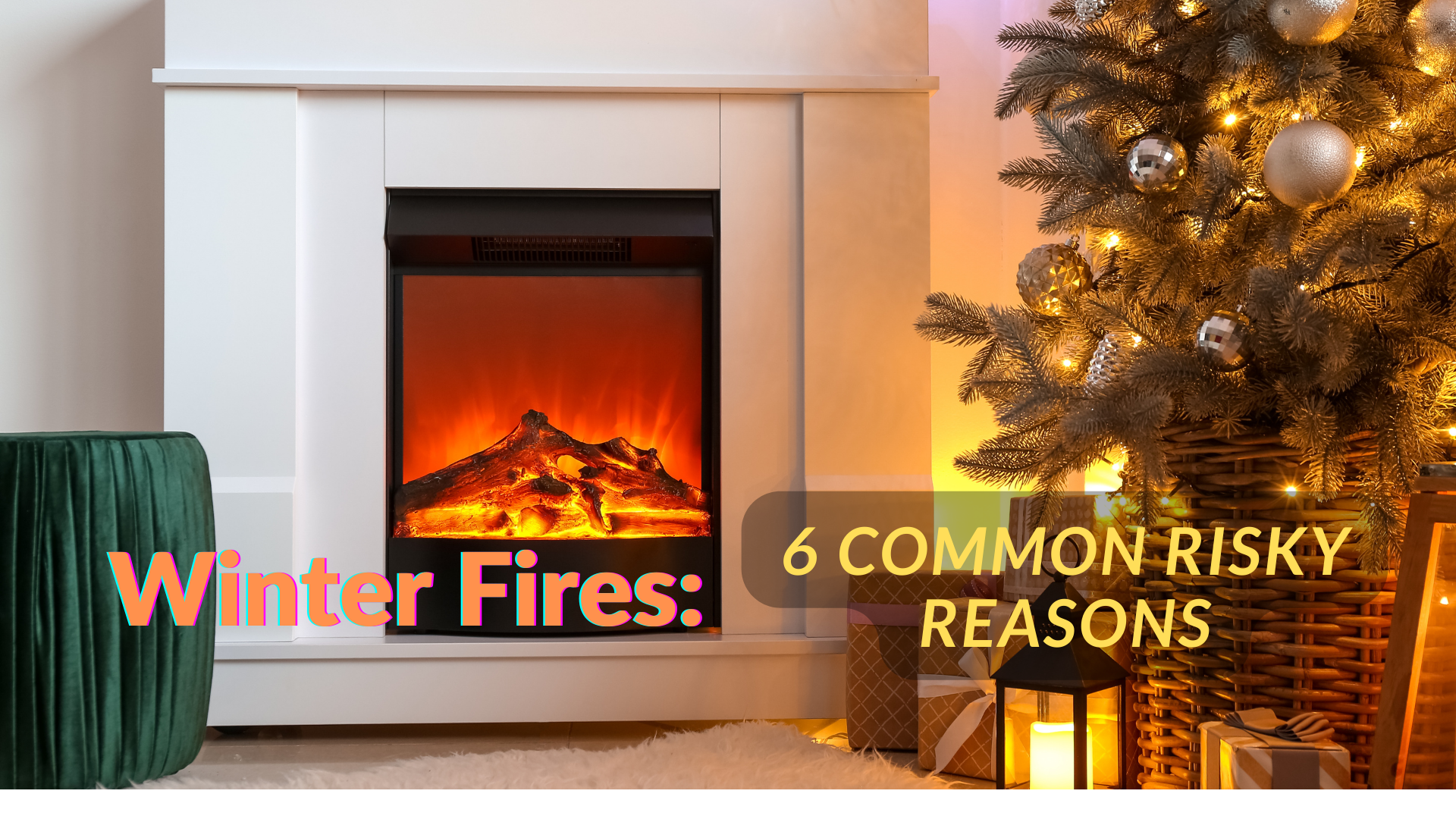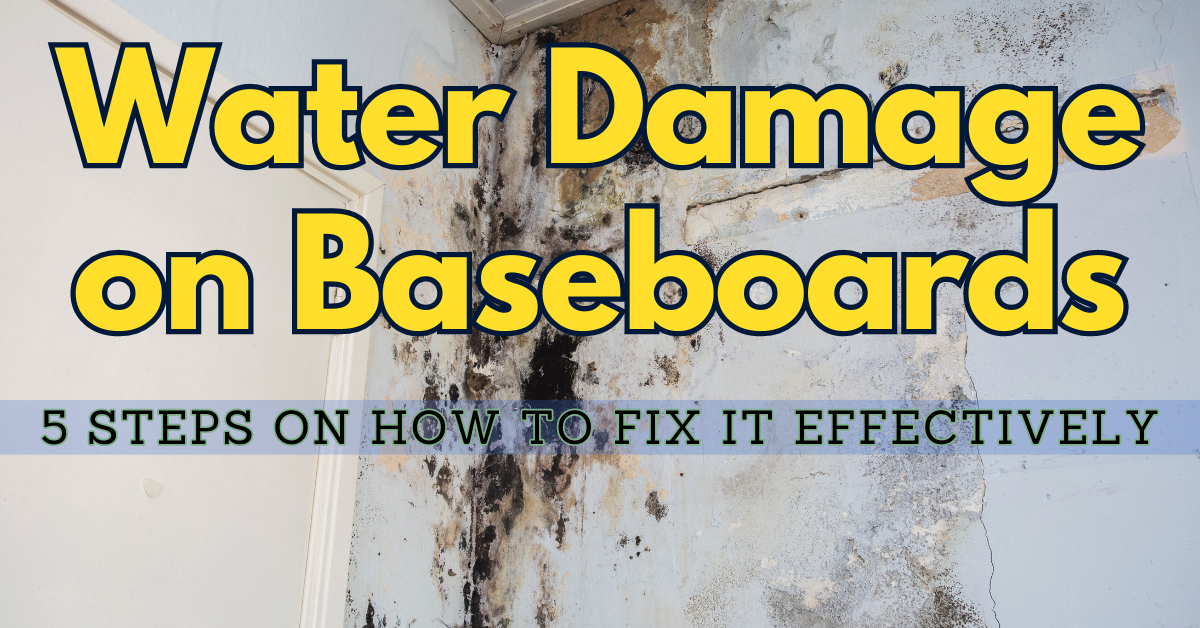During the winter, we typically choose to stay indoors and eagerly anticipate the warmer weather. To keep ourselves warm during the cold season, we often overuse our home heating systems, which increases the risk of winter fires. The more time we spend inside our homes, the greater the probability that home fires will occur.
Based on the National Fire Protection Association (NFPA), every year, home fires lead to damages worth approximately $6-8 billion dollars, with more than 360,000 incidents happening. As you read this article, you will learn about the common reasons for winter fires and get professional fire safety advice to protect your family.
Additionally, it is worth noting that December, January, and February are the months that the risk of fire increases.
Causes of Winter Fires
During the winter months, particular causes of home fires tend to become more common. Here are the following factors:
1. Burning Candles
When fresh air is not circulating in our homes, we often rely on scented candles to improve the ambiance or complement our holiday decorations. Regrettably, between 2012 and 2016, around 8,200 candle fires were recorded, with December being the month with the highest incidence of such incidents.
People falling asleep while their candles are still burning accounts for 11% of home candle fires, resulting in fire deaths. Hence, it’s crucial to ensure you extinguish all candles before bedtime at night and never leave the room while they are burning. This advice is vital and has been widely circulated on social media to prevent candle-related accidents.
In the majority of house fires, particularly in three out of every five instances, fires are started by flammable objects being placed too close to candles. To prevent such incidents, it is recommended to keep candles at least three feet away from items that can catch fire, like holiday decorations, curtains, blankets, and so on.
Please note that there are several flameless options available in the market today, such as wax warmers, oil diffusers, and plug-in air fresheners, which can provide scents without the risk of an open flame.
2. Cooking
Cooking is identified by the U.S. Fire Administration as the leading cause of home fires all year round, especially during winter when people tend to cook indoors more frequently. To safeguard your home, it is essential to take preventive measures:
- To prevent accidents while cooking, it is essential to remain vigilant in the kitchen and never leave hot appliances unattended.
- To minimize the fire risk, keep flammable objects, such as paper products, towels, and potholders away from the stove.
- Keeping your stove and oven clean on a regular basis can prevent the accumulation of grease and minimize the risk of winter fires.
- While cooking, it is crucial to ensure that children and pets remain at a safe distance of at least three feet away from the stove.
3. Electrical Lighting (particularly on Christmas trees)
Improper electrical setup is responsible for 43% of Christmas tree fires, underscoring the importance of safely installing your Christmas lights to prevent electrical fires.
- Using lit candles to illuminate your Christmas tree should be avoided as they can pose a fire hazard.
- If you come across any string of lights with loose bulb connections, frayed wires, or signs of wear, it’s crucial to replace them. Additionally, carefully follow the manufacturer’s instructions regarding the maximum number of light strands you can connect to prevent overloading your outlet or power strip, which could potentially start a fire.
- To minimize the risk of winter fires, remember to turn off your Christmas lights before leaving the house or going to bed.
Note: LED lights consume less energy compared to incandescent lights, allowing you to use more of them simultaneously.
4. Christmas Trees
Both real and fake Christmas trees can be dangerous if not handled properly. Real trees can catch fire easily because their needles dry out. On the other hand, artificial trees can produce harmful chemicals and smoke that can cause big fires.
If you want a real tree, make sure it has fresh, green needles that stay on when you touch them. Before putting it in the stand, cut 2 inches from the bottom of the trunk so it can drink water better. Remember to water your tree every day to keep the needles from drying out, because dry trees can catch fire easily.
To prevent fires, keep things that produce heat like radiators, heaters, fireplaces, and vents at least three feet away from your tree. Also, make sure your tree doesn’t block any doors or hallways you might need to use to get out of the house. Lastly, practice with your family how to escape from a fire.
5. Smoking
Below are some smoking safety recommendations:
- It is crucial to refrain from smoking indoors to prevent winter fires that commonly start in living rooms, family rooms, dens, or bedrooms.
- To keep children safe, store smoking materials such as cigarettes, lighters, and matches out of their reach by either locking them in a cabinet or placing them high up.
- Use a sturdy ashtray to extinguish smoking materials and avoid discarding them in flammable vegetation such as plants, peat moss, or mulch.
- Before disposing of cigarette butts and ashes, ensure you extinguish them fully by dousing them with sand or water.
6. Electrical Appliances like Loading Washers and Dryers
During the fall and winter, dryer fires tend to occur more frequently, with the highest incidence in January. Most dryer fires occur because homeowners neglect to clean their dryers, which is the leading cause. A buildup of lint and other materials can obstruct the unit from releasing heat, turning it into fuel for hazardous fires.
Notes:
- To prevent fires in your dryer, make sure to clean the lint filter every time you use it.
- Arrange for a professional to clean the vent and ductwork of your dryer at least once a year.
- Also, remember to check your vents and ductwork regularly between cleanings to avoid any buildup.
- Moreover, always have someone nearby and pay attention when the dryer is in operation.
For Fire Damage Restoration Services, Contact Superior Restoration
If your home or business has had a fire, it can be really tough afterwards. But don’t worry, Superior Restoration is here to assist you.
Our skilled team is experts in repairing and restoring fire damage. We can take out smoke, soot, and debris, and also handle any water damage. We know it’s crucial to act quickly and do a thorough job to minimize the damage and get you back on your feet as soon as possible.
If you’re looking for dependable and thorough fire damage restoration services, get in touch with Superior Restoration today.





